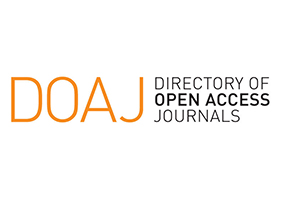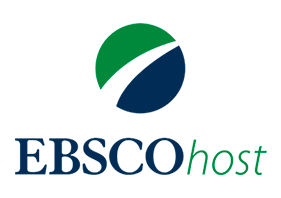Reconocimiento del valor storytelling y la cocreación en la construcción de microsegmentos a través de la estrategia de marketing digital
DOI:
https://doi.org/10.33304/revinv.v17n2-2022005Palabras clave:
comunicaciones de marketing, cocreación de historias, consumidor, marketing digital, comportamiento del consumidorResumen
El presente documento busca evaluar la contribución de un modelo integrativo que permita, a través de la estrategia de marketing digital, reconocer el valor de la generación de contenidos cocreada y el storytelling en la microsegmentación de mercado. La estrategia metodológica se centra en presentar los conceptos desde los desarrollos académicos encontrados mediante la búsqueda de su relación en un estudio bibliométrico. Posteriormente, se presentan las variables requeridas para la construcción de un modelo conceptual, con un enfoque analítico-sintético. El análisis bibliométrico arroja como resultado que los temas no se han desarrollado de forma conjunta. Finalmente, se concluye que la adaptación de un modelo de integración de las tres variables contribuye a un desarrollo adecuado de canales de comunicación. Lo anterior se da gracias a un perfilamiento asertivo de los clientes derivado de una propuesta de valor claramente definida a partir del storytelling y la cocreación, que sería comunicada mediante el marketing digital.Descargas
Citas
Algesheimer, R., Dholakia, U. M. y Herrmann, A. (2005). The social influence of Brand community: evidence from European car clubs. Journal of Marketing, 69(3), 19-34.
American Marketing Association [AMA] (2017). Definición de marketing. https://www.ama.org/the-definition-of-marketing-what-is-marketing/
American Marketing Association [AMA] (2016). 7 grandes problemas en la industria del marketing. https://www.ama.org/marketing-news/7-big-problems-in-the-marketing-industry/
“Are We There Yet?” – Developing a Content Marketing Maturity Model (2015, enero 2). The Content Pool [Blog]. https://thecontentpool.wordpress.com/2015/01/02/are-we-there-yet-developing-a-content-marketing-maturity-model/
Austria, X. (2020). 13 tendencias de marketing para 2030. https://www.entrepreneur.com/article/343728
Bhattacherjee, A. (2001). Understanding information systems continuance: an expectation confirmation model. MIS Quarterly, 25(3), 351-370.
Chaffey, D., y Ellis-Chadwick, F. (2019). Digital marketing. Pearson.
Chen, S. C., y Lin, C. P. (2019). Comprender el efecto de las actividades de marketing en redes sociales: La mediación de la identificación social, el valor percibido y la satisfacción. Technological Forecasting and Social Change, (140), 22-32.
Chen, S. C., Liu, M. L., y Lin, C. P. (2013). Integrating technology readiness into the expectation–confirmation model: an empirical study of mobile services. Cyberpsychology, Behavior, and Social Networking, 16(8), 604-612.
Chen, S. C., Yen, D. C. y Hwang, M. I. (2012). Factors influencing the continuance intention to the usage of Web 2.0: an empirical study. Computers in Human Behavior, 28(3), 933-941.
Davids, Z., y Brown, I. (2021). The collective storytelling organisational framework for social media use. Telematics and Informatics, 101636.
Debatin, B., Lovejoy, J. P., Horn, A. K., y Hughes, B. N. (2009). Facebook and online privacy: attitudes, behaviors, and unintended consequences. Journal of Computer-Mediated Communication, 15(1), 83-108.
Delgado, E., y Fernández, E. (2016). ‘Once upon a brand’: storytelling practices by Spanish brands. Spanish Journal of Marketing, 20(2), 115-131.
Deloitte, C. (2020). Reporte de Tendencias Globales. https://www2.deloitte.com/content/dam/Deloitte/ar/Documents/about-deloitte/2020-global-marketing-trends-es.pdf
Durugbo, C., y Pawar, K. (2014). A unified model of the cocreation process. Expert Systems with Applications, 41(9), 4373-4387.
Dwivedi, Y. K., Ismagilova, E., Hughes, D. L., Carlson, J., Filieri, R., Jacobson, J., y Wang, Y. (2020). Setting the future of digital and social media marketing research: Perspectives and research propositions. International Journal of Information Management, 102168.
Felix, R., Rauschnabel, P. A., y Hinsch, C. (2017). Elements of strategic social media marketing: A holistic framework. Journal of Business Research, (70), 118-126.
Franc, N. F. (2021). Cambios que deberá afrontar el marketing digital en las próximas generaciones (Master’s thesis, Maestría en Mercadeo Digital).
Giner, G. R., y Rillo, A. P. (2014). Métodos y técnicas facilitadoras de la cocreation innovation en programas máster para el mercado del postgrado. Intangible capital, 10(1), 101-124.
Hartman, S., Parra, C., y de Roo, G. (2019). Framing strategic storytelling in the context of transition management to stimulate tourism destination development. Tourism Management, (75), 90-98.
Hernández-Sampieri, R. y Torres, C. (2018). Metodología de la investigación. McGraw-Hill Interamericana.
Hurtado, O., Montoya, I. y Montoya, A. (2020). Cocreación de valor en las interrelaciones universidad-empresa (del Eje Cafetero) [Tesis doctoral, Universidad Nacional de Colombia, Manizales, Colombia].
Jiménez, A. R., y Jacinto, A. (2017). Métodos científicos de indagación y de construcción del conocimiento. Revista Escuela de Administración de Negocios, (82), 175-195.
Kannan, P. (2017). Digital marketing: A framework, review and research agenda. International Journal of Research in Marketing, 34(1), 22-45.
Kim, A. J., y Ko, E. (2012). Do social media marketing activities enhance customer equity? An empirical study of luxury fashion brand. Journal of Business Research, 65(10), 1480-1486.
Koman, L. (2021). ¿Qué es la madurez del marketing de contenidos y cómo se consigue? https://manifest.com/news-ideas/path-content-maturity
Lopera, J., Gómez, C., Aristazábal, M., y Vanegas, J. O. (2010). El método analítico como método natural. Nómadas. Critical Journal of Social and Juridical Sciences, 25(1).
López, M. T. (2021). Tendencias e impacto de la inteligencia artificial en comunicación: cobotización, gig economy, cocreación y gobernanza. Fonseca, Journal of Communication, (22).
Mathwick, C., Malhotra, N., y Rigdon, E. (2001). Experiential value: conceptualization, measurement, and application in the catalog and Internet shopping environment. Journal of Retailing, 77(1), 39-56.
Montoya, I., Castellanos, O., y Montoya, A. (2021). Metáforas biológicas aplicadas a las organizaciones III [en prensa]. Universidad Nacional de Colombia, Sede Medellín.
Montoya, I., Muñoz, G., y Montoya, A. (2021). Nuevas tecnologías y marketing digital. Un análisis prospectivo [en Prensa]. Esumer
Montoya, A., Castaño, J., y Montoya, I. (2015). Metodología de evaluación de brand equity bajo la perspectiva de las comunicaciones integradas de marketing y el lovemark. Punto de vista, 6(10), 1.
Morales, H. H., Plested, M. C., y Cobo, J. E. A. (2015). El Coco-Game un juego de mesa para cocrear, potenciación del trabajo colaborativo y creativo. Enl@ce: Revista Venezolana de Información, Tecnología y Conocimiento, 12(1), 57-76.
Moreno, N. (2014). Comunicación integrada de marketing: un acercamiento a la evolución del concepto. Semestre económico, 17(35), 161-192.
Nicoli, N., Henriksen, K., Komodromos, M., y Tsagalas, D. (2021). Investigating digital storytelling for the creation of positively engaging digital content. EuroMed Journal of Business.
Pavlou, P. A., Liang, H., y Xue, Y. (2007). Understanding and mitigating uncertainty in online exchange relationships: a principal-agent perspective. MIS Quarterly, 31(1), 105-136.
Prahalad, C. K., y Ramaswamy, V. (2004a). cocreating unique value with customers. Strategy and Leadership, 32(3), 4-9. http://www.cs.cmu.edu/~jhm/Readings/cocreating unique value with customers.pdf
Prahalad, C. K., y Ramaswamy, V. (2004b). Cocreation experiences: the next practice in value creation. Journal of Interactive Marketing, 18(3), 5-14. https://doi.org/10.1002/dir.20015
Rillo, D. y Giner, G. R. (2015) Cocreation innovation for business programs for educational institutions [Tésis Doctoral, Universitat Politècnica de València, España]. RiuNet Repositorio Institucional UPV. https://doi.org/10.4995/Thesis/10251/51462
Sanchez-Lopez, I., Perez-Rodriguez, A., y Fandos-Igado, M. (2020). The explosion of digital storytelling. Creator’s perspective and creative processes on new narrative forms. Heliyon, 6(9), e04809.
Sanders, E. B., y Stappers, P. J. (2008). Cocreation, New, Landscapes, Design. Codesign, 4(1), 5-18. http://dx.doi.org/10.1080/15710880701875068
Shobeiri, S., Laroche, M., y Mazaheri, E. (2013). Shaping e-retailer’s website personality: The importance of experiential marketing. Journal of Retailing and Consumer Services, 20(1), 102–110.
Terri, C. (2003) Need-based segmentation and customized communication strategies in a complex-commodity industry: A supply chain study. Industrial Marketing Management, 32(4). https://doi.org/10.1016/S0019-8501(02)00204-3.
Van Laer, T., Feiereisen, S., y Visconti, L. M. (2019). Storytelling in the digital era: A meta-analysis of relevant moderators of the narrative transportation effect. Journal of Business Research, (96), 135-146.
Vaz-Álvarez, M., Fieiras-Ceide, C., y Túñez-López, M. (2021). Experiencias de cocreación en Medios de Servicio Público Europeos: Visión y Tendencias. AdComunica, 71-84. https://doi.org/10.6035/2174-0992.2021.21.5
Yueh, H. P., y Zheng, Y. L. (2019). Effectiveness of storytelling in agricultural marketing: Scale development and model evaluation. Frontiers in Psychology, (10), 452.
Zane, D., y Irwin, B. (2021). The collective storytelling organisational framework for social media use, Telematics and Informatics, (62). https://doi.org/10.1016/j.tele.2021.101636.











